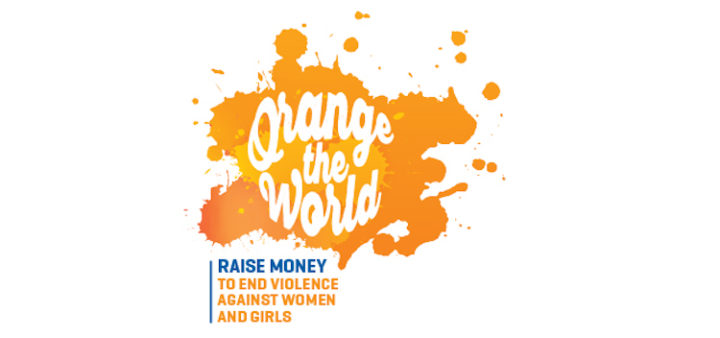By Santo D. Banerjee for InDepthNews.
On November 25, the United Nations and civil society commemorate the International Day to End Violence against Women. That same day, UN Women – the global champion for gender equality – will kick off 16 days of global activism, until December 10, to halt a gross violation of women’s human rights that affects at least 1 in 3 women and girls worldwide.
“It is a pandemic that we must stop. To do so, we need everyone’s help,” says Phumzile Mlambo-Ngcuka, UN Under-Secretary-General and Executive Director of UN Women.
UN Women is leading the global initiative ‘Orange the World: End Violence against Women and Girls’ on behalf of the UN Secretary-General’s global campaign UNiTE to End Violence against Women.
“The colour orange has been chosen for the issue to symbolize a brighter future without violence against women,” explains Mlambo-Ngcuka. During the 16 days of activism, events are being organized in all parts of the world.
This year, from the Mayor’s Gracie Mansion and City Hall in New York City to the European Commission Headquarters Building in Brussels, Parliament building in Uganda, buildings and landmarks around the world will be lit in orange, says Mlambo-Ngcuka.
Marches and rallies will mobilize women and men to demand an end to violence against women in countries from Pakistan to Papua New Guinea and Brazil.
“Everyone has a role in the efforts to end violence against women. I invite you to join us this year as an important influencer of public awareness and opinion,” adds UN Women’s Executive Director.
UN Women has produced and made available content for organizations wishing to plan activities in the 16 Days on the website at http://www.unwomen.org/en/news/in-focus/end-violence-against-women
The UN Secretary-General’s UNiTE to End Violence against Women Campaign is inviting governments, UN agencies, civil society organizations and individuals from all countries to mark the days between November 25 and December 10 by raising resources for initiatives that aim to prevent and end violence against women and girls.
The international campaign – 16 Days of Activism Against Gender-Based Violence – takes place each year and runs from November 25 (International Day for the Elimination of Violence against Women) to December 10 (Human Rights Day), also encompassing other important key dates.
Widely known as the “16 Days Campaign”, it is used as an organizing strategy by individuals and organizations around the world to call for the prevention and elimination of violence against women and girls. It was originated by the first Women’s Global Leadership Institute in 1991 and is coordinated by the Centre for Women’s Global Leadership.
In 2015, as part of the initiative ‘Orange the World: End Violence against Women’, “orange”-related activities were organized in more than 90 countries around the world and more than 311 million people were reached through social media sparking a global conversation, new commitments and initiatives.
To mention just a few examples, the organisers “oranged” the Niagara Falls both on the American and Canadian sides, the National Monument of Pakistan, the UNESCO World Heritage archaeological site of Petra in Jordan, the Peace Palace in the Hague, Netherlands, and Brazil’s Presidential Palace. A wide variety of online and offline events were held, from educational programmes on campus to UN seminars, from theatrical performances to photo exhibits.
In 2015, a new global development agenda was accepted by all countries and is applicable to all. Through its 17 goals, the 2030 Agenda for Sustainable Development guides global policy and action for the next15 years.
The Agenda recognizes gender equality and the empowerment of women as a key priority and pledges that “no one will be left behind”. Goal 5 of the agenda aims to “Achieve gender equality and empower all women and girls” and includes specific targets to eliminate all forms of violence against women and girls. For the first time, ending violence against women and girls has become a core part of the global development agenda.
However, despite the international community’s visible interest and political will to address the global pandemic of violence against women and girls, there is still a lack of adequate and sustained resources to translate the national efforts into effective programmes and practices that make positive changes in the lives of women and girls.
The gap between binding commitments, laws and policies in place and the lived experiences of women and girls who should benefit from them is still far too wide.
UN Women is therefore stressing that acknowledging the imperative of addressing violence against women must be followed by securing adequate and durable resources to increase efforts to prevent violence, provide survivors with access to available essential services and to justice, and ensure that laws and policies are implemented to real effect.










